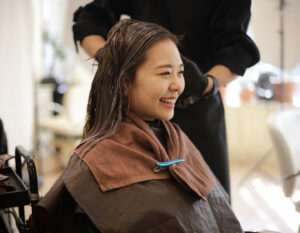

It may not be the most glamorous of topics, but one of the first things you learn about raising a family in Hong Kong is how important it is to invest in a high-quality air purifier! With so many choices and models available, we enlisted the help of Joyce Lau – co-founder of health & lifestyle company Greenbox – to give us mamas some tips on finding the purifier best suited for our homes:
Why should I care about my indoor air quality?
When we think about air quality, it is normally outdoor pollution that comes to mind. However, having clean air in your home or office is often an assumed oversight. Outdoor air that flows indoors through open doors and windows, window edges and ventilation shafts, strongly affects the quality of your indoor air. Furthermore, the use of air conditioning recirculates bad air, meaning the time it takes for your air to improve indoors can often take longer than outdoors. Time that is spent at home is meant to help you and your body recover, without the interference of bad air affecting your lungs and respiratory system, possibly leading to allergies and asthma or worse.
How does air pollution affect infants?
Babies and young kids are more sensitive and vulnerable to the effects of bad air. Pollution not only affects infants and children in their early childhood, but is also a very critical period for further development and maturation. Children’s lungs, immune system and brain are immature at birth and continue to rapidly develop until roughly age 6. The cell layer lining inside the respiratory tract is particularly permeable during this age period. Compared to adults, kids breathe 50% more air per kilogram of body weight – that means they are breathing more pollution into their bodies then us! Air pollution exposures can have lasting effects on future health, such as elevated risk of developing allergies and respiratory tract diseases such as bronchitis and asthma.
How do I choose a suitable air purifier?
I’ve received a lot of emails about how to choose the best air purifier. Everyone seems to be overwhelmed by the information and choices available. To be honest, it can get very confusing and this is something I have been researching in depth for quite some time and am only now writing about it because I have found my “the one”. There is really no “best” purifier, but only the most “suitable” one.
Here are 5 tips for finding “the one” for you:
1. Trusted brand
It would be logical to find an air purifier that has a long track record. But by trusted brand, I mean a long history in air purifying technology, not just any electrical appliances brand. There are big brands out there who do an okay job but aren’t working at optimal efficiency when you look into their specs. Also, look out for the warranty. It’s not any handyman’s job, you do need a specialist to look at it if something goes wrong.
2. Identify your needs
When buying an air purifier, you should first identify your primary concerns and understand what problems you are trying to solve with your purchase. Are you allergic to something? Do you have asthma? Do any of your family members smoke? Do you want to control dust and pet dander? Do you want to kill mould? Do you want to kill bacteria and viruses or do you simply want to improve the air quality at home?
Air purifier effectiveness varies from model to model, removing different amounts of airbourne particles from your air. For example, a lower-end air purifier may remove only 30% of particles (so that’s from pollen to dust) , whereas higher quality units can remove up to 99.97% of particles (even viruses). Thus, knowing what you need can narrow your search and lead you to the ideal customised device for your situation.
3. Look for HEPA filters
HEPA stands for High Efficiency Particulate Air, and is a type of filter that traps the most significant amount of allergens and pollutants from the air. Air purifiers with a HEPA filter are the most effective. True HEPA filters remove at least 99% of particles in the air that are 0.1 microns and up. However, the filter must be replaced every six months to maintain effectiveness.
4. Square footage
The placement of your air purifier will make a difference in its effectiveness. Before you purchase, decide where you will place your unit and make sure the square footage of the space can be covered by the air purifier.
5. Price Point
I strongly believe that air purifier technology is an investment in your health. Many air purifier brands claim significant results at lower price points. In my own experience, the unit quality and performance suffer at lower price points. However, I recommend investing in the best air purifier you can get within your budget.
 View All
View All











 View All
View All





 View All
View All


 View All
View All













